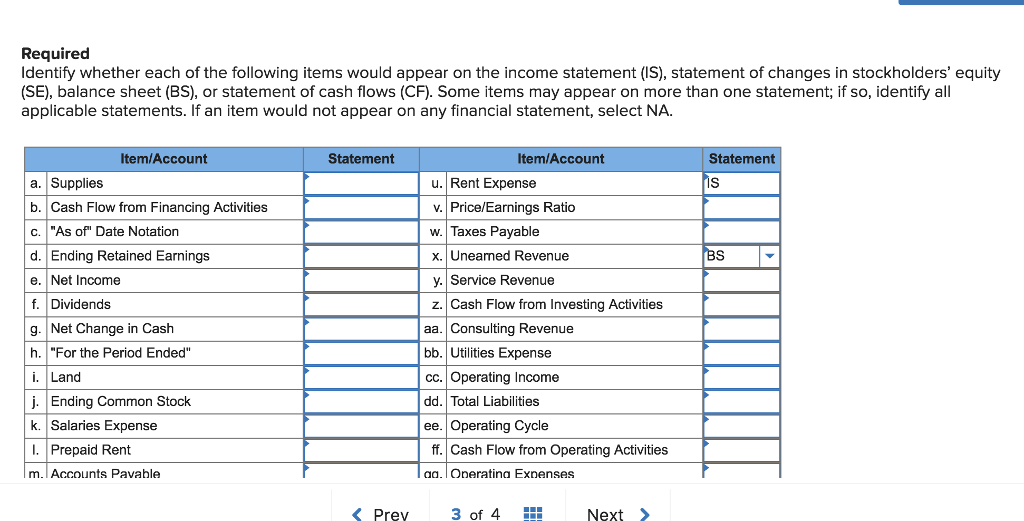
Ultimately the best way to know if you’re on solid ground with your write-offs is to hire a qualified tax professional who can guide you through the process of categorizing your income and expenses. But falsely claiming or misstating a deduction can add up to reporting the wrong total tax obligation on your tax return. And not paying all the tax you owe on time could leave you owing even more — and facing interest and penalties on the unpaid amount. For example, while there is a deduction for medical and dental expenses, you generally can’t take it for cosmetic surgery, though there are some exceptions.

The Internal Revenue Service allows individuals to claim a standard deduction on their income tax returns. Individuals can also itemize deductions if they exceed the standard deduction level. A tax write-off (an unofficial term for a tax deduction) is a business expense that the IRS allows you to deduct from your business’ profit when filing federal taxes. Writing off an expense means you lower your overall taxable income — which may mean you’ll recoup some of the cost of those expenses in your tax return. You might also see a write-off referred to as deducting or itemizing an expense.
Tax Tips
Generally, on the balance sheet, this will involve a debit to an unpaid receivables account as a liability and a credit to accounts receivable. Find out what adjustments and deductions are available and whether you qualify. ” Simply put, a tax write-off is a reduction on your overall tax bill. Generally, you can deduct charitable contributions of cash totaling up to 60% of your adjusted gross income, or AGI.

Even if an expense is a legitimate write-off, the maximum amount it will save you is your current tax bracket. This guide will set the record straight and explain everything you need to know about tax write-offs. Even though the depreciation percentage will be decreasing, businesses can still reap significant benefits, and unlike Section 179 most purchases aren’t capped at a specific dollar amount. Under Section 179, you may be able to deduct property such as equipment, machinery, furniture, vehicles or buildings (but not land). Your business may also be able to depreciate some types of intangible property, such as computer software, copyrights or patents, copyrights.
The package includes complex crypto tax provisions that will go into effect in 2024. You can still trade cryptocurrencies and minimize your tax exposure without getting into trouble with the IRS, and that starts with taking advantage of tax deductions. Work with a tax professional, or use business tax preparation software, to help ensure you take the maximum deductions available to you. Also for 2023, the highest tax rate is 37% while the lowest is 12%. You can deduct the employment taxes you must pay from your own funds.
Deductions for Self-Employed Businesses, Contractors and Freelancers
Ultimately, the IRS determines what expenses can be considered a legitimate write-off. The amount that a tax write-off is worth depends on several factors surrounding the deduction or credit. Many tax deductions and credits have limits which are prescribed by the tax provisions and the limits can depend on several factors like your filing status, income, and dependents. The term “tax write-off” is also used by business owners to refer to legitimate business expenses.

In early 2023, Joe joined Bench and his bookkeeper located $6,000 worth of contractor expenses that he was not aware of. These expenses count as tax deductions and reduce his net self employment income to $54,000. Tax write-offs for your business are calculated using expense tracking reports. Throughout the year, it’s important to keep records for business-related expenses paid.
And married couples who file separately can deduct up to $5,000 each. The standard deduction is typically the easier of the two options since it doesn’t involve things like saving receipts and keeping track of deductible costs throughout the year. Finally, as with individuals, the IRS allows businesses to deduct money that they donate to qualifying charities. You cannot always deduct charitable donations, and you cannot necessarily deduct all the money you donate, so be sure to check carefully before you plan your taxes around a charitable donation. As you learn about these and other tax write-offs, consider how they might apply to your specific tax situation and expenses you’ve incurred throughout the year.
Medical Xpress
Finally, bear in mind that while you can deduct certain expenses, you might not want to. Because while lowering your taxable income might get you a bigger tax return, it can have other financial consequences for your business — like determining which loan amounts you qualify for. The term write-off may also be used loosely to explain something that reduces taxable income.
- Plus, AGI may also help determine what tax deductions and credits a person qualifies for.
- This comes up most often for individuals who file taxes as a business.
- Form an LLC, corporation, or nonprofit, and get an EIN, business license, or registered agent service.
- There are no guarantees that working with an adviser will yield positive returns.
- This is not a dollar-for-dollar tax rebate and it only generates a refund if you paid more in estimated taxes than you owe at the end of the year.
A tax deduction (or “tax write-off”) is an expense that you can deduct from your taxable income. You take the amount of the expense and subtract that from your taxable income. Additionally, some expenses are explicitly not tax deductible even though they’re necessary to your business operations. These include expenses related to the cost of goods sold (COGS), capital expenses (expenses required to get your business off the ground, like startup costs), and personal expenses. A write-off is an accounting action that reduces the value of an asset while simultaneously debiting a liabilities account.
Uniforms or Costume
Instead of using actual expenses, the deduction under the optional method is limited to $1,500 per year based on $5 per square foot for up to 300 square feet. Multiple factors determine how much a tax write-off is worth to you. If you pay someone to care for a child or another dependent while you work, you may be able to claim the Child and Dependent Care Credit. To qualify, the person receiving the card must be a child (under age 13) or a spouse or other dependent who is physically or mentally incapable of self-care. For a trip to qualify as business travel, it has to be ordinary, necessary, and away from your tax home. Your tax home is the entire city or area in which you conduct business, regardless of where you live.
Individuals can claim write-offs in the form of deductions and credits. A tax deduction is a result of a tax-deductible expense or exemption which reduces your taxable income. Unlike tax deductions, tax credits are subtracted from and are a dollar-for-dollar reduction of the taxes you owe (not taxable income). For example, a $100 credit reduces your tax dollar-for-dollar ($100). On the other hand, a deduction reduces your taxable income by $100.
These borrowers have been in income-driven repayment (IDR) plans for more than 20 years and “never got the credit they earned” under IDR plans, the White House said in a statement Monday. Many people don’t even know they qualify for deductions and they end up bearing a greater tax burden than they should. You don’t want to be ignorant of tax write-offs when they can give you some relief in dealing with a mortgage, student loan debt, or saving for retirement. As with all things involving tax laws, there are additional guidelines that apply so review the IRS publication or talk to your tax professional. If you use your car exclusively in your business, you can deduct car expenses.
You may hear your friend who owns a business discussing a write-off for an extravagant meal with a client or a business trip to a conference in Las Vegas. But, for individuals, neither of these expenses would be deductible. Working with a tax professional is always a good idea but if you elect not to at least make sure you go to the IRS’ website and read the rules regarding the different types of deductions carefully.
How the 2024 presidential candidates talk about taxes and budget challenges — a voters’ guide – CBS News
How the 2024 presidential candidates talk about taxes and budget challenges — a voters’ guide.
Posted: Mon, 21 Aug 2023 18:00:00 GMT [source]
Itemized deductions let you cut your taxable income by taking any of the hundreds of available tax deductions you qualify for. You may be able to write off the following twelve common write-offs, which include both tax credits and deductions. Additionally, you may be entitled to write-offs on your state taxes, so check your state tax department’s Tax write off website to see if you qualify. It’s important to determine your eligibility for tax deductions and tax credits before you file. The one-time account adjustment comes after the Biden administration last month announced it would forgive student loans for 804,000 borrowers with a combined $39 billion in federal student loan debt.
Tax write-offs and the benefits of using them
You may also be able to deduct other taxes, such as real estate taxes, employment taxes, or sales taxes. Costs related to marketing your business and finding new customers can be deducted as advertising expenses. This may include developing and printing promotional materials, the cost of a social media campaign, website creation and maintenance, or any ads used to draw in new business. A tax write-off for a business comes with good news and bad news. The bad news is that it has an asset that’s not worth as much as it previously thought.
3 Individual Savings Claims – We calculated each customer’s interest savings based on payments Tally made on their behalf to their credit cards with a higher APR than their Tally line of credit. We compared the total daily interest that would have accrued with and without Tally based on the difference between their credit card APR and the APR for their Tally line of credit. We excluded payments made to cover minimum payments to cards with a lower APR than Tally or to cards that were in a grace period at the time of payment. A tax credit is substantially more valuable than a tax deduction. As a result, many people look for ways to try to minimize their tax liability. If you’ve heard talks about a tax write-off, you might wonder what it is, how it works, and whether the IRS allows it.
If a company generates $10,000 in income and deducts the $1,000 cost of a business insurance policy, their net taxable income will become $9,000. In this article, we’ll explain what a tax write-off is, which business expenses are tax deductible, and how to make tax deductions when filing taxes. Running a small business is undeniably expensive, which is one key reason the IRS lets small business owners deduct certain business expenses from their taxable revenue. These deductions — informally known as tax write-offs — lower a business’s taxable income, which can help small businesses save money. Below-the-line deductions, on the other hand, are qualified expenses that are subtracted from your adjusted gross income to help determine your taxable income. There are dozens of itemized deductions available to taxpayers and all of them have different rules.
An expense write-off will usually increase expenses on an income statement which leads to a lower profit and lower taxable income. To combat this, many employers offer Health Savings Accounts (HSA). Contributions made directly to the HSA, (not through payroll deductions) are a tax-deductible expense. HSA Contributions made through a payroll deduction are not tax deductible since the contribution has never been recognized as income. Learn more about the tax-deductible HSA contribution limits and more on this topic.
Write-offs may be tracked closely with an institution’s loan loss reserves, which is another type of non-cash account that manages expectations for losses on unpaid debts. Loan loss reserves work as a projection for unpaid debts, while write-offs are a final action. The solar tax credit, also known as the “residential clean energy credit,” can get you up to 30% of the installation cost of solar energy systems, including solar water heaters and solar panels. Ellen Chang is a freelance journalist who is based in Houston and writes articles for U.S. Chang previously covered investing, retirement and personal finance for TheStreet. She focuses her articles on stocks, personal finance, energy and cybersecurity.

